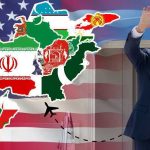Lebanese-Israeli border agreement can be an example for others


The emphasis on the Karish gas field is something new in these negotiations. Israel says that the entire Karish field is within its exclusive economic zone, but Lebanon asserts that a portion of the field is located in disputed waters. It cannot be used until the two countries have reached an agreement on how to define their maritime boundaries.
The senior American diplomat said: “We’re in a sensitive spot to try and get the sides to narrow the differences and get to a place where they can reach an agreement” after meeting with the president of Lebanon, the speaker of the Lebanese parliament, and the head of the caretaker government. I think that’s vital for Lebanon and, to be honest, crucial for Israel, he continued.
The Lebanese posture might change as a result of this. The negotiations hit a major roadblock last year when Lebanon extended its claim to sovereignty further south, from what is known as “Line 23” to “Line 29.” This resulted in its territorial claim expanding by around 1,400 sq km.
Related Posts
Hochstein drew an alternative boundary that would start on Line 23. It would resemble an “S” rather than being a straight line. In spite of the fact that doing so would shift Lebanon’s water rights further north, Beirut rejected the idea. The apparent progress in the negotiations between the two nations may indicate some level of Lebanese acceptance of the American idea.
It is evident that Israel and Lebanon want to directly involve the US in managing the negotiations, notwithstanding the lack of political clarity over the final state of the maritime border between the two nations. They can then carry Washington with as much weight as they are able to.
Both of them have a valid stance towards the latter topic. Any Iranian involvement in the Israeli-Lebanese maritime dispute will enable Tehran to further exploit Lebanon and siphon off its income. Additionally, it would violate Lebanon’s sovereignty. In the territorial waters between Lebanon and Israel, Iran is getting ready to conduct oil exploration through Hezbollah. This will be done with the intention of giving Iran unrestricted access to Lebanese gas and oil.
This is the physical manifestation of Tehran’s theft of nation’s policy, which it employs in all of the nations with whom Iran does business. Iran is attempting to take as much of the 1.7 billion barrels of recoverable oil and 122 trillion cubic feet of recoverable gas that the US Geological Survey estimated to be in the Levant Basin Province in 2010. Iran will therefore challenge any agreement reached over Israel and Lebanon’s maritime boundary.
There are a number of proposals that should be discussed during negotiations between Israel and Lebanon. First, if a deal is reached, it must specify a certain completion date or plan. Second, it needs to be promoted to the rest of the world as an excellent illustration of how countries might resolve their maritime border issues. Thirdly, since it would lend international legitimacy to any accord, US President Joe Biden must bring up the matter during his trip to the Middle East next month.



















